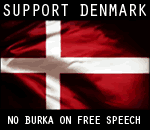Saddam lied and people died
Of course that's not the phrase so popular to those against the war and the Bush administration. However, foolish bumper sticker slogans, more concerned with scoring political points, are a poor substitute for providing for the national defense of this country. But then, given the words and actions by the MSM and TUS it seems that defending this country is not their main concern.
According to a new book (via Drudge) about the former Iraqi leader's war planning:
Even as U.S. Invaded, Hussein Saw Iraqi Unrest as Top Threat
The Iraqi dictator was so secretive and kept information so compartmentalized that his top military leaders were stunned when he told them three months before the war that he had no weapons of mass destruction, and they were demoralized because they had counted on hidden stocks of poison gas or germ weapons for the nation's defense.
[...]
In December 2002, he told his top commanders that Iraq did not possess unconventional arms, like nuclear, biological or chemical weapons, according to the Iraq Survey Group, a task force established by the C.I.A. to investigate what happened to Iraq's weapons programs. Mr. Hussein wanted his officers to know they could not rely on poison gas or germ weapons if war broke out. The disclosure that the cupboard was bare, Mr. Aziz said, sent morale plummeting.
To ensure that Iraq would pass scrutiny by United Nations arms inspectors, Mr. Hussein ordered that they be given the access that they wanted. And he ordered a crash effort to scrub the country so the inspectors would not discover any vestiges of old unconventional weapons, no small concern in a nation that had once amassed an arsenal of chemical weapons, biological agents and Scud missiles, the Iraq survey group report said.
Mr. Hussein's compliance was not complete, though. Iraq's declarations to the United Nations covering what stocks of illicit weapons it had possessed and how it had disposed of them were old and had gaps. And Mr. Hussein would not allow his weapons scientists to leave the country, where United Nations officials could interview them outside the government's control.
Seeking to deter Iran and even enemies at home, the Iraqi dictator's goal was to cooperate with the inspectors while preserving some ambiguity about its unconventional weapons — a strategy General Hamdani, the Republican Guard commander, later dubbed in a television interview "deterrence by doubt."
That strategy led to mutual misperception. When Secretary of State Colin L. Powell addressed the Security Council in February 2003, he offered evidence from photographs and intercepted communications that the Iraqis were rushing to sanitize suspected weapons sites. Mr. Hussein's efforts to remove any residue from old unconventional weapons programs were viewed by the Americans as efforts to hide the weapons. The very steps the Iraqi government was taking to reduce the prospect of war were used against it, increasing the odds of a military confrontation.
When someone is acting in a way to produce doubt and they are known for having and using WMD previously, the prudent course of action is to not trust them.There is still the matter of vast amounts of records and data that have yet to be translated or analyzed. It would be foolish to draw final conclusions until such information is completely examined and exploited properly. But some are more concerned with playing partisan politics and making silly bumper stickers.
---
Blogs with open posts: Don Suber - Is It Just Me? - Jo's Cafe - The Crazy Rants of Samantha Burns - Voteswagon.com - The Uncooperative Blogger - The Real Ugly American - Adam's Blog - third world county - The Median Sib - Stuck On Stupid - The Liberal Wrong Wing - TMH's Bacon Bits - Blue Star Chronicles - Mudville Gazette
Technorati Tags: Iraq Saddam WMD Bush intel war terrorism











